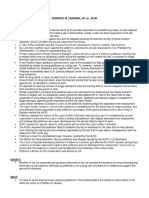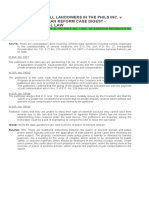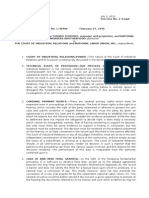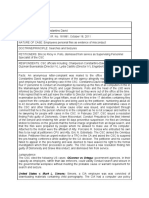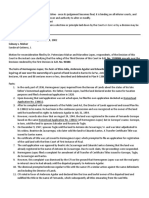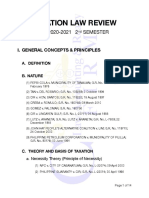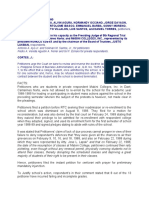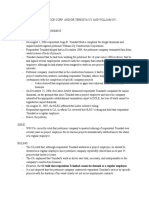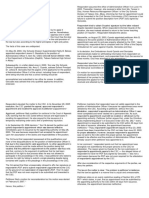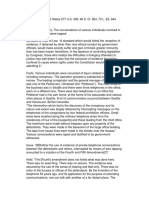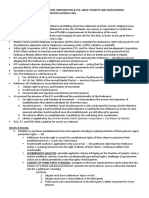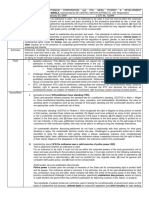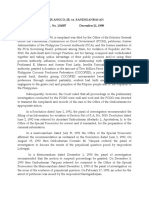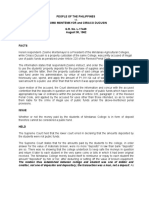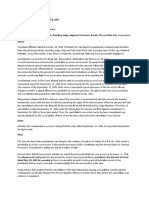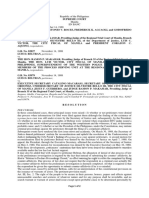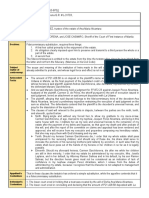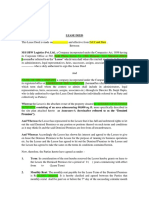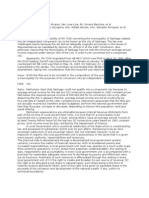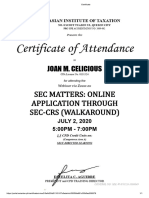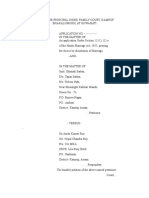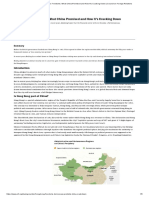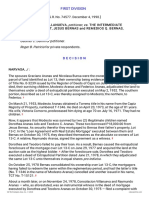0% found this document useful (0 votes)
245 views2 pagesGR 122846 White Light Vs City of Manila
1) Several hotel and motel operators in Manila filed a case challenging a city ordinance prohibiting short-time admissions in establishments like hotels and motels.
2) The issue is whether the establishments have legal standing to assert violations of their patrons' equal protection rights.
3) The court ruled that the establishments do have standing, as they meet the criteria of having a concrete interest affected by the ordinance, having a close relationship with patrons, and patrons facing hindrance in bringing their own case.
Uploaded by
Jimenez LorenzCopyright
© © All Rights Reserved
We take content rights seriously. If you suspect this is your content, claim it here.
Available Formats
Download as DOCX, PDF, TXT or read online on Scribd
0% found this document useful (0 votes)
245 views2 pagesGR 122846 White Light Vs City of Manila
1) Several hotel and motel operators in Manila filed a case challenging a city ordinance prohibiting short-time admissions in establishments like hotels and motels.
2) The issue is whether the establishments have legal standing to assert violations of their patrons' equal protection rights.
3) The court ruled that the establishments do have standing, as they meet the criteria of having a concrete interest affected by the ordinance, having a close relationship with patrons, and patrons facing hindrance in bringing their own case.
Uploaded by
Jimenez LorenzCopyright
© © All Rights Reserved
We take content rights seriously. If you suspect this is your content, claim it here.
Available Formats
Download as DOCX, PDF, TXT or read online on Scribd
/ 2

